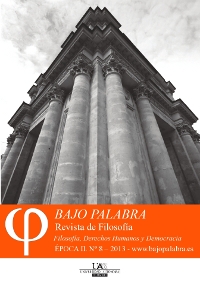Keywords:
Neo–liberalism, democracy, resistance, poverty, inequality, ecological footprintCopyright (c) 2013 Ermanno Vitale

This work is licensed under a Creative Commons Attribution 4.0 International License.
Abstract
This essay offers a concise analysis of the calamities caused by neo–liberalism in the last thirty years, the prevailing economic doctrine, currently taken as a true ideology –in the sense of a theory that aims to cover all aspects of social reality–. The dogmas of neo–liberalism are presented –for mere explanatory reasons– in ten points, which are widely contradicted on the practical realm and by the disastrous consequences caused by their strict application by many Governments and international organizations: persistence of absolute poverty, increased inequality, environmental destruction, infantilization of citizens, etc. From a political point of view, the most perturbing consequence is that neo–liberalism has become a liquidator of the democracy constructed with so much effort in the West, despite all its flaws, in the second half of the 20th century. On this diagnosis, the essay suggests, for each of the ten points presented, we may indicate forms of cultural and political resistance, with the hope of recovering the path towards the realization of the age of rights, the main character – in Bobbio’s words – of the past century.
